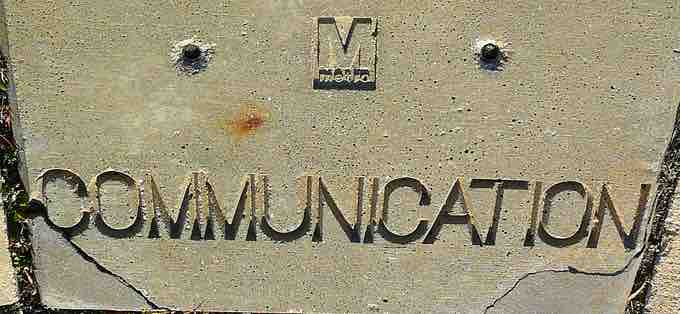Effective communication takes place when information is shared accurately between two or more people or groups of people and provokes the desired response. Effective communication should generate and maintain the desired effect, and offer the potential to increase the effect of the message. The goal of communication is usually to generate action, inform, create understanding, or communicate a certain idea or point of view.

Communication
Carefully considering word choice, mode of message, and the intended audience can eliminate many barriers to communication.
Barriers to Effective Communication
Barriers to effective communication distort, obscure, or misrepresent the message and and fail to achieve the desired effect. Barriers to successful communication include message overload (when a person receives too many messages at the same time) and message complexity. Another barrier is "knowledge-appropriate" communication–using ambiguous legal words or medical jargon with another person who doesn't understand them. Effective communication only happens when the words and symbols used create a common level of understanding for both parties.
Other common barriers to effective communication include the following:
- Physical barriers like distance, inferior technology, or staff shortages that reduce information processing capacity.
- System design faults like ambiguous definition of roles that can lead to confusion about message targets; lack of oral and written communication skills; and poor information technology infrastructure, including networks and applications.
- Attitudinal barriers presented by individuals. One person may want information compressed to bullet points, another may demand granular detail. Personality conflicts can lead people to delay or refuse to communicate, and dissatisfaction with the style of a message can result in its being ignored or misinterpreted.
- Ambiguous words/phrases that sound the same but have different meanings. Here the communicator must ensure that the receiver receives the intended meaning through careful word choice that avoids the possibility of multiple interpretations.
- Individual linguistic ability is important to consider: will intended targets understand industry-specific jargon, complex words, or colloquialisms? Using words that recipients can't understand is inappropriate and counter-productive, resulting in confusion and alienation.
- Physiological barriers like ill health, poor eyesight, or hearing difficulties. Even a common cold can impact someone's ability to compose or understand a message.
- The format and delivery of information is important. Communications have to take the potential barriers of an audience into account and tailor the message to reach them.